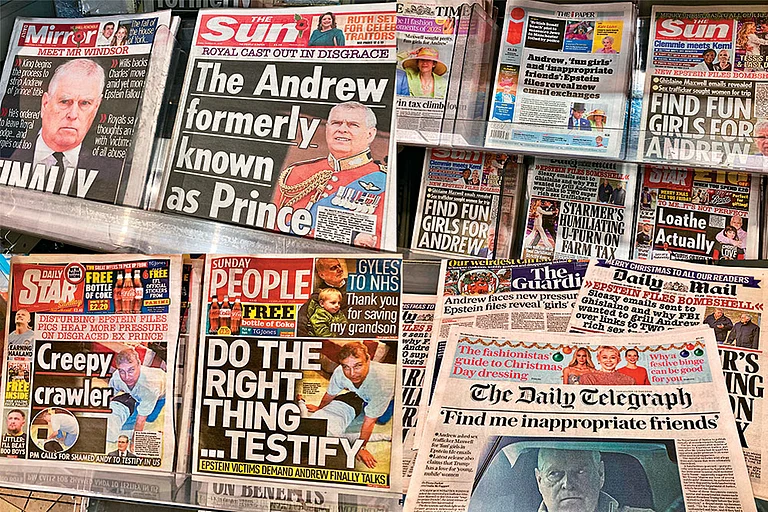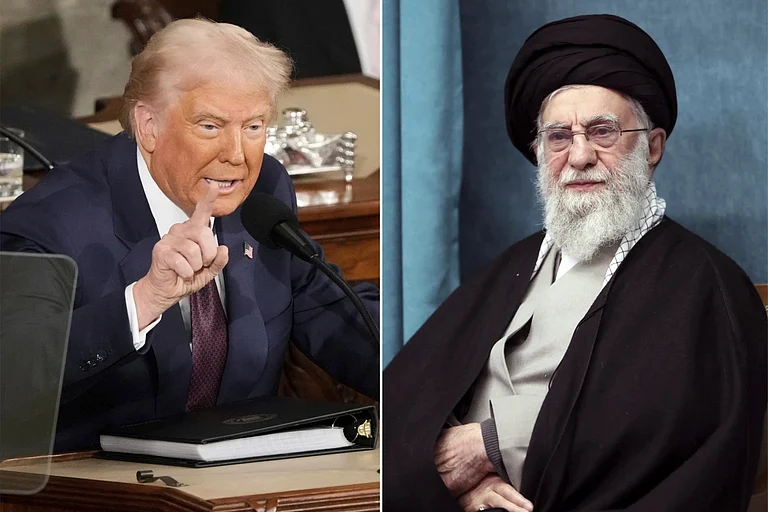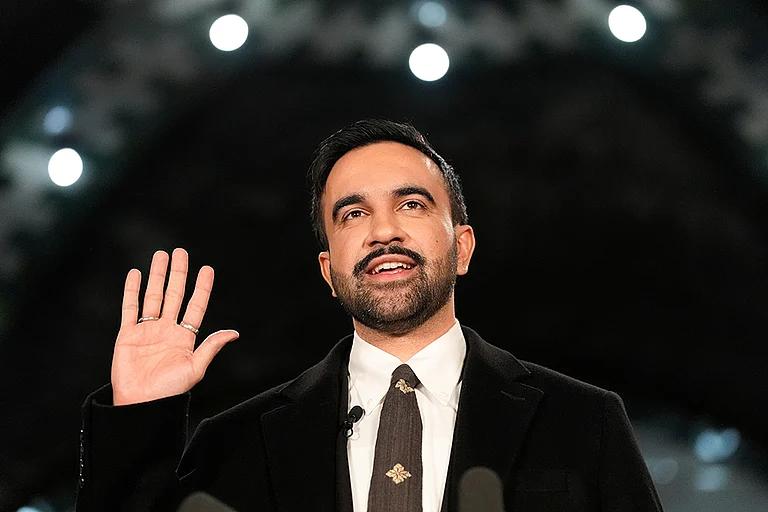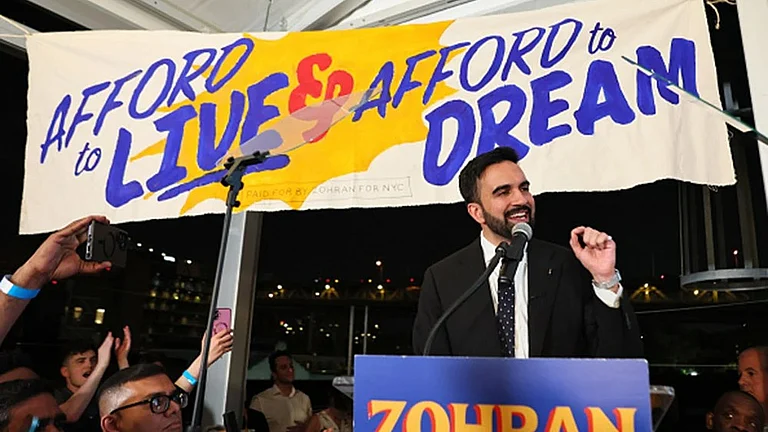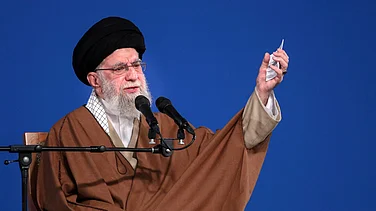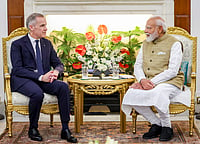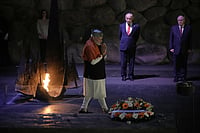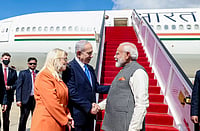
Zohran Mamdani becomes the youngest mayor of New York City at 34, breaking political norms and defying traditional power structures
Mamdani built a multiracial, working-class coalition focused on social justice, affordability, wealth redistribution, and public services, bypassing reliance on big donor
Embracing his Ugandan-Indian roots and a pro-Palestine stance, Mamdani’s win reflects a growing progressive, youth-driven, and multicultural influence in urban American politics
By the time election day came along, Zohran Mamdani’s win was no surprise. Opinion polls had predicted a clear victory, yet his supporters were nervous. Pollsters had often gone wrong. Many recalled the 2016 presidential elections when Hillary Clinton was the favourite to win against Donald Trump. The Clinton’s were preparing for the celebration party when events took an unexpected turn. Nothing is certain till the last vote is counted. So when the moment arrived, the thunderous cheers in the campaign headquarters was electrifying. It was not just for the victory, but a rupture, a break from the past. Mandani had won against all odds. Mamdani had won against all odds and broke every rule of New York’s political playbook.
At 34, he is the youngest mayor to take office since 1892. An immigrant of Ugandan and Indian descent, he flaunted his identity and did not shy away from his roots. His campaign videos show him eating biryani using his fingers, slipping between Hindi, Arabic, and Spanish, and quoting Amitabh Bachchan film dialogues with relish.
And he did so in a city with the largest Jewish population outside Israel, at a moment when most politicians avoided even mild criticism of Prime Minister Benjamin Netanyahu. Mamdani did the opposite. He spoke openly of civilian casualties in Gaza, accused the IDF of war crimes, and went so far as to say he would have Netanyahu arrested if he visited New York. After his victory speech, the crowd broke into celebration to the beat of Bollywood’s Dhoom Machale Dhoom, a nod to his unabashed love of Hindi cinema.
“Zohran Mamdani’s victory was broad and deep, cutting across ethnicity, race, religion, gender and class. Alongside South Asians, African-Americans, Latinex’, a significant part of the younger Jewish community voted for him despite the vicious and nauseating Islamophobic campaign run by billionaire super PACs and Cuomo,” says Philip Golub, professor at the American University in Paris, himself a Jew. “What does this show? First, a clear generational shift, with young, articulate and attractive progressives coming to the fore in major urban areas. Of course, NYC is not the USA - it has always been the multicultural and multinational heart of the country,” Golub adds.
When Mamdani entered the race last January, he seemed an unlikely contender. Early polls placed him at two per cent, sometimes less. His name recognition was minimal. In a political landscape sharpened by years of polarisation, many assumed a brown, openly pro-Palestine candidate would quickly disappear. He was expected to be a footnote of an also-ran.
But as months passed, his campaign gathered momentum as his message resonated. Mamdani knew that people in the city were bleeding with the high cost of living. So he promised affordability, free city-run grocery shops, free child care, faster buses free of charge, exorbitant rents would be stablised and raising minimum wages to $30 per hour by 2030 from the current rate of $16.50. He would fund his socialist by taxing the rich. Corporate tax rate would be raised to 11.5 per cent as in neighbouring New Jersey and a 2per cent income tax on those earning over $1 million per year.
New York’s rich were shocked, with President Donald Trump leading the charge and dubbing Mamdani a rabid Communist who would drive business out of New York. Wealthy donors tried to crush him by funding his rival, disgraced former Governor Andrew Cuomo.
Former Democratic mayor Michael Bloomberg donated $13.3 million, the family of cosmetic giants, Estee Lauder family gave as much as $25.9 billion. Airbnb’s Joe Gebbia $2 million, hedge fund manager Bill Akerman $1.75 billion, and Alice Walton, heiress to the Walmart fortune put in $200,000 to defeat Mamdani. But money power could not crush Mamdani.
Ordinary New Yorkers trusted him because he was one of them. He did not look like the traditional politician, nor behave like one. He spoke openly about justice and equality, something they felt deeply about. He was not apologetic about his progressive policies, spoke the language of public interest, redistribution of wealth, public investment, and collective ownership, something politicians avoided for being seen as too radical, but now embraced by the young.
The campaign built a multiracial, working-class coalition that cut across borough lines. It didn’t rely on television ads or donor portfolios. It relied on doorsteps and sidewalks.
Israel-Palestine
Mamdani was pro-Palestine like many of his supporters. As the Gaza war unfolded, people ignored the legacy media relying instead on raw gut-wrenching images through livestreams, TikTok videos, and Instagram stories of civilian suffering. The brutality of the war led to massive protests across America’s elite universities. The mood was definitely anti-war and anti-Netanyahu. For many urban progressives including a significant number of Jewish New Yorkers the moral landscape shifted.
Mamdani was not apologetic about his anti-Israel stand. His views on the Gaza genocide made him stand out from the rest of his fellow Democrats and ran contrary to the standard Democratic line. He was an exception, much like Bernie Sanders, Alexandria Ocasio-Cortez, and a few others. For decades, the mainstream Democratic position on Israel was fixed, predictable, and largely unquestioning of Israel’s policy on Palestine. With the powerful Jewish lobby pouring billions to fund lawmakers on both sides of the political divide, few had the guts to question Israel.
A case in point was the first debate of the nine candidates, vying for Democratic party’s endorsement in the primaries in June. When candidates were asked which country they would visit after the elections, the majority said Israel. Mamdani however said he would remain in New York, drawing criticism from the pro-ISRAELI groups. This is the kind of stronghold the Jewish lobby has over American politicians. His critics projected Mamdani as a jihadi, and even brought out a poster with the twin towers and his photograph etched on it, meaning he is a supporter of terrorism. Mamdani is not anti sematic or anti-Israel, but a critic of Prime Minister Netanyahu’s policies.
But the narrative is changing, especially among young voters who frame the Israel-Palestine narrative through the lens of human rights, power and accountability. The shift does not mean that all voters agree with Mamdani. But he has made it acceptable to criticise Netanyahu and gone on to win elections, something inconceivable earlier. Following the results, Avigdor Liberman, leader of a right-wing opposition party in Israel said " The Big Apple has fallen,” and urged “New York Jews who want to survive” to emigrate “to where they belong — the land of Israel.”
Seismic Shift?
Is the Mamdani victory a seismic shift in American politics or a one-off event born of anger against the political establishment and Trump’s anti-immigrant policies and the rising cost of living? It is too early to tell.
The road ahead is difficult. If Mamdani can deliver visible improvements in housing, transit, and public service, if life in the city becomes materially better for the working and middle classes, then he becomes a template for Democrats to follow.
Mamdani himself mentioned in his victory speech that campaigning is like poetry but governing is prose. Yes, he is aware of the hurdles ahead. New York’s governance structure is designed to limit the power of the mayor, and Trump has threatened to do just that and cut off federal funding.Besides, Mamdani will have to confront entrenched real estate lobbies that are closely linked to New York city’s revenue streams. The city budget is dependent on property taxes, making affordable housing that much more difficult. An entrenched city bureaucracy with institutional memory and survival instincts, could oppose the mayor’s every move.
The road ahead is complex. Winning an election against the machine is one thing. Governing a city of eight million people and delivering on bold campaign promises will be another.
Ten months into Trump’s presidency, the electorate soundly rejected his Republican candidates. Moderate Democrats like Mikie Sherril in New Jersey and Abigail Spanberger in Virginia have won gubernatorial races, defeating Trump’s Republican candidates. Governor Gavin Newsom's redistricting measure to add more seats from the state was also endorsed by the electorate. This will certainly energise the despondent Democratic base for next year’s Congressional elections. Will the Democratic Party learn from Mamdani’s victory in New York? Or will the win be taken as a natural reaction to Trump’s style of governing? Will the party shed its old ways and embrace the changing face of American politics? For there is a growing divide between the old and the young, and the very style of politics. No one knows.









